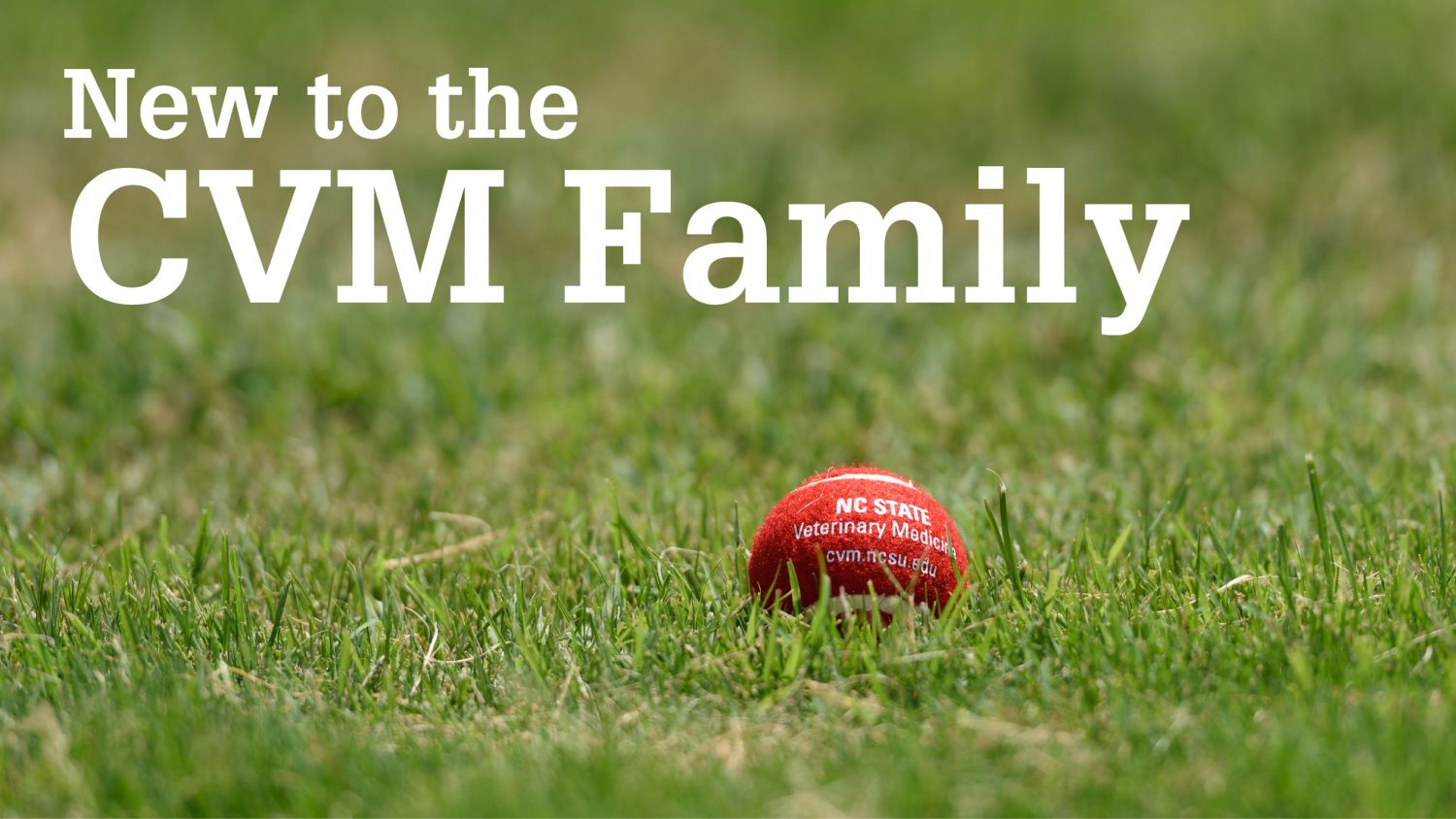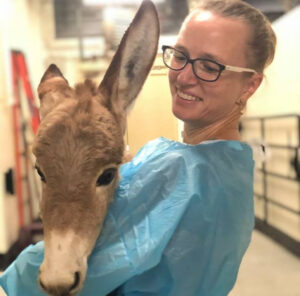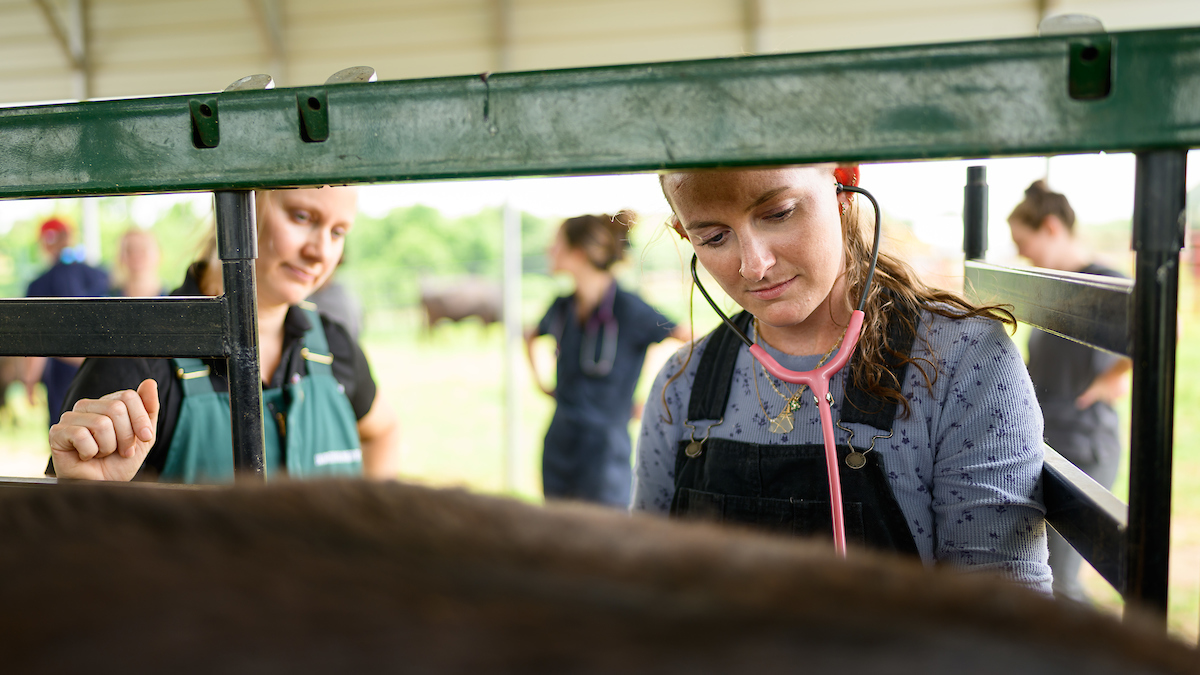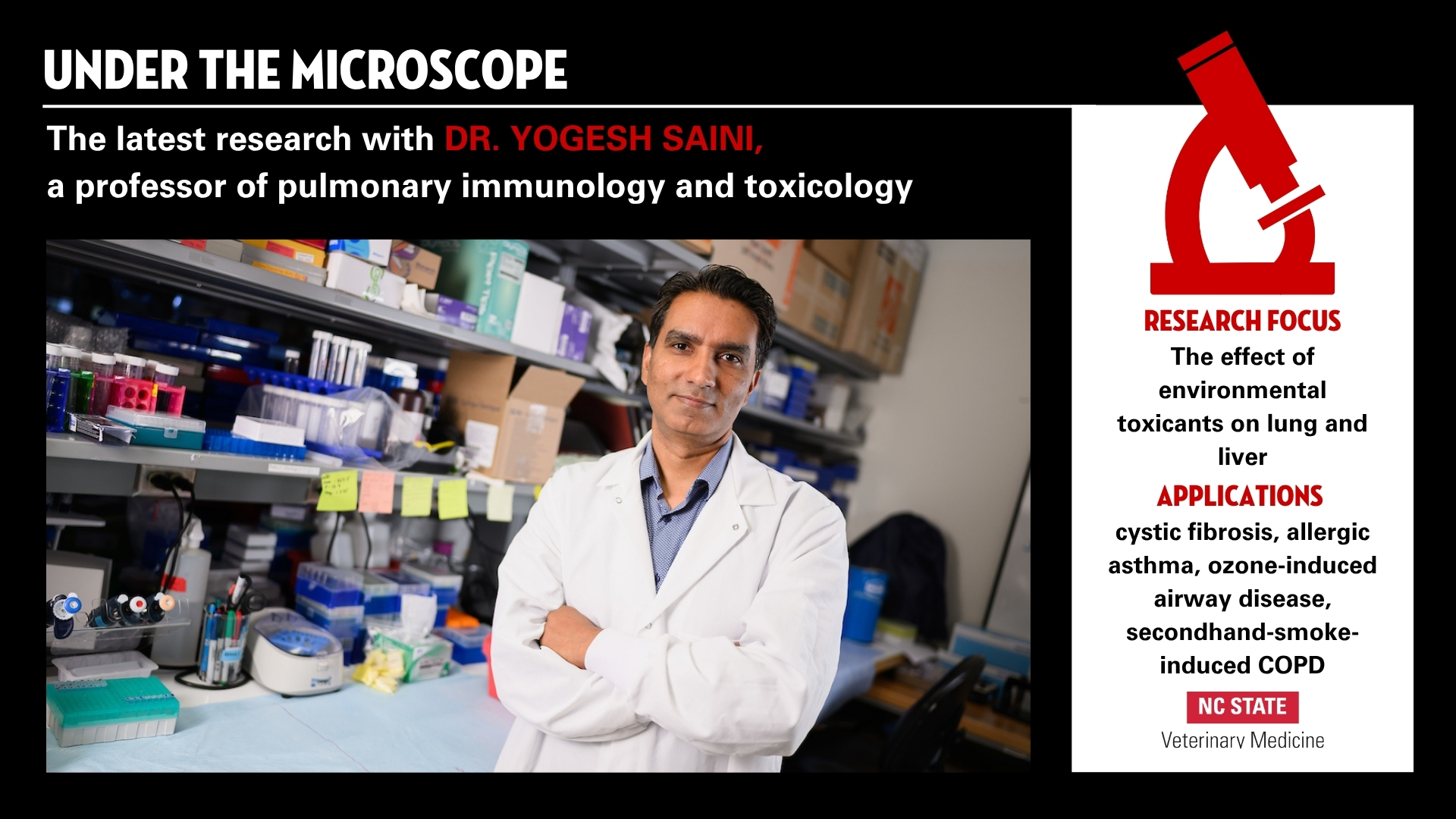New to the CVM Family: Meet Megan Burke

Megan Burke grew up as a non-traditional child in the Castro district of San Francisco, Calif. She started riding horses when she was 9 years old because she loved animals, but her dad was very allergic to everything with hair. If animals couldn’t come to her house, she would go to the animals.
Even though she was always interested in animals, she had never considered veterinary medicine as a career. Burke majored in history and minored in environmental science as an undergraduate at Brown University and started her professional life as a biologist. Unsatisfied with her career choice, Burke quit her job and started to teach horseback riding. Once a week a veterinarian would visit the barn where she worked, and Burke would help her with the appointments.
Within two months, Burke decided to apply to veterinary school.
Burke received her DVM with a focus on equine medicine and surgery from University of California, Davis. She completed a residency at the University of Pennsylvania in large animal surgery and is currently doing a fellowship at the Ohio State University in large animal emergency and critical care. She hopes to become a board-certified criticalist and train residents in equine emergency care.
Even though Burke is not new to NC State, she’s new to her position as the clinical assistant professor of equine emergency at the NC State Veterinary Hospital’s Equine and Farm Animal Veterinary Center. Burke has transitioned from her clinical veterinarian position into a faculty position, where she will be training more students, conducting research and helping to grow the equine emergency service.

What are you most excited about in this role?
I’m most passionate about colic cases. They are my favorite because each case is different and it’s always a puzzle that keeps you on your toes. Colic and colitis are the number one emergency for horses and they can be very complicated. In our emergency service, about 85% of incoming cases are gastrointestinal-related and of those 60% are colic or colitis cases.
This is an important issue and I want to make a difference in the lives of horses now and in the future, which is why colic cases motivate my long-term research goals. With each and every case, our goal is to reduce the morbidity and complications with this disease and we do what we have to do to help them.
What’s something someone would be surprised to learn about you?
I didn’t get my first pet until I was in veterinary school. My second year, I adopted my dog Lily, a mutt, from a rescue in Sacramento, Calif.
I also spend my free time trying to stay up-to-date on current events. I like to read The New York Times and The Atlantic. I majored in 20th century world history as an undergrad and I find it all very fascinating. I’m especially interested in how the lessons of World War I and II have continued to influence United State’s foreign policy during the last 80 years. As a country, we’ve made a lot of the same mistakes over and over again.
When you’re not on campus, where could we find you?
I play a lot of soccer. I was a varsity athlete in college and played semi professionally in the Bay Area after college.
I also like to run. I usually run at Umstead State Park because it’s so close to NC State. When I’m driving to Ohio, sometimes I stop at Pilot Mountain and run the trails there to break up the drive.
I’m also a reader. I’ve read almost everything that Barbara Kingsolver has written. I recently read “The Winter Soldier,” by Daniel Mason and would recommend it. The book follows a Polish medical student in Austria who works as a field surgeon for the German Army during World War I.
- Categories:


